Issue 127 – Monday 22 July 2024
HeadsUp
Well, Semester 2 has begun. That came on fast.
Thanks to everyone for making our roughly 47 Semester 2 courses happen.
It’s a changing-of-the-guard kind of semester.
We welcome the pilot versions of some new courses (SCIGEN 102 Waipapa Taumata Rau / Contemporary Science in Aotearoa New Zealand and TDENVF 100 Our Environmental Futures: Te Taiao Tāngata).
Thanks Karen, Rachael, Sonia, Nick R, Anthony, Mila and Jen for your involvement in WTR, and Marie, Joe and Mila (again) for your involvement in TDENVF 100.
And we witness a final lap of honour for several of our trusty steeds (EARTHSCI 120, ENVSCI 101, GEOG 101, GEOG 102, GEOG 103) that will be superseded next year by our four ENV-badged courses (note: EARTHSCI 105 and GEOG 104 have their G badge for 2025, so they have potentially one more year).
Thanks to everyone involved in these courses for strapping on the spurs, so to speak, one last time.
- Tom (Acting HoS)
ENV-stories
I was born in Edmonton Alberta, a very conservative oil and rodeo obsessed place (apologies to any fellow Albertans). My father was an adventurous physical geography professor and my mum evolved from the Swedish exchange student who visited his family in Dublin when she was 16, to an economics professor specialising in shipping and trade. My growing up life was essentially driven by my dad’s various ventures and whims. He was obsessed with Antarctica, having spend 3 years on Adelaide Island being a meteorologist for the British Antarctic Survey. So off course we had to had a sled dog that pulled us around on cross-countries skies (and bit people, because really….they are not pets). My Dad was offered a place at UToronto (and my mum, but she didn’t like the terms and quickly moved to Ryerson). They were the immigrants who could never quite understand why they didn’t fit in, having bought the parka and various other paraphernalia (but not hockey, tuques or anything that is actually Canadian). They also viewed having friends, playing sport, summer jobs and going to camp (also typical Canadian activities) as somewhat damaging to children’s development (and disruptive of their lifestyle) and kept taking us out of school for interminable long visits to Israel, Ireland, Sweden, Tanzania, where we went to all sorts of odd schools (usually religious as they were always happy to have us). We always came back dressed in some itchy untrendy outfit with new artworks that were very difficult and embarrassing to transport (I think this is now called cultural appropriation). My dad also adored sailing, which my brother took up professionally, now having his own company in Nice, France. He buys old boats and does them up for rich people, occasionally liking them too much to part with them (but making good places for vacations as long as you don’t mind turn-of-the-century facilities in somewhat bad repair). I am very happy living in Aotearoa New Zealand with a bit of distance.
Karin Bryan
Whakawhanaungatanga – Communities
Sustainability Teaching Network seminar: Alessandro Premier and Dan Tisch, Fri 26 Jul
Seminar Details:
Date: Friday 26 July 2024
Time: 1pm-2pm
Location: Online via Zoom
Join Zoom Meeting
https://auckland.zoom.us/j/99427503613?pwd=QVoxd3c5ZVFmcWw5S2NGV2dFZ0I0dz09
Meeting ID: 994 2750 3613
Passcode: 277896
Given the timing of the meeting, you are welcome to eat lunch while you listen to the presentations.
Speaker blurbs and bios:
Alessandro Premier: Team-Work Strategies and Synergies in Environmental Design Undergraduate Classes
Working in group effectively may be challenging for undergraduate students, especially after Covid-19 pandemic when interpersonal relationships were limited and building trust was more difficult. This presentation is focused on student team-work strategies and synergies to develop the coordinated design of a complex site where sustainability is considered holistically.
Alessandro Premier joined the School of Architecture and Planning of the University of Auckland in 2018 where he is senior lecturer and stream leader of Architecture Technology and Sustainability. He is also member of the Future Cities Research Centre of the same school where he is coordinator of the ‘Low-Carbon Solutions and Zero-Emissions Economy’ research domain. He is currently coordinating and teaching the Environmental Design courses of the Architecture Programme.
Dan Tisch: Teaching Climate Change for Commerce Students at Scale
Dan will discuss the challenges and successes of delivering a compulsory second-year Bachelor of Commerce course to 1800 students annually, through a hybrid online, in-person structure. He will share insights from his course design, incorporating global learning sources on climate change, and implementing innovative assessment methods, as well as the attributes of a unique organisational team of 12 staff ranging from Graduate Teaching Assistants to Professors – with a result that earned them the Quacquarelli Symonds (QS)-Wharton Reimagine Education Bronze Award in 2022.
Dan began his academic roles with the Department of Management and International Business at The University of Auckland in 2007. Prior to his appointment at Auckland, he held academic positions at the Auckland University of Technology, Massey University, and Swiss Business School in Zurich. Dan also brings a decade of experience as an ecologist and consultant within the Canadian forest industry. His expertise encompasses a range of specialized areas including sensemaking theory, the development of organizational capabilities for climate change adaptation and resilience, the application of business simulations in educational contexts, and agribusiness within New Zealand. His scholarly work primarily investigates the interplay between organizations and the natural environment with a particular emphasis on climate change. Dan has published in Business Strategy and the Environment, International Journal of Entrepreneurial Behaviour & Research, Sustainable Development, and Journal of Management & Organization, among others. In teaching, Dan is the Module Lead for Climate Change for BUSINESS 202 Business Consulting, a mandatory course for the Bachelor of Commerce with 1800 students enrolled each year. Dan supervises doctoral and masters candidates. Their research context is situated at the nexus of strategic management and environmental studies, contributing to theories that intersect these areas.
Please feel free to share this seminar information and meeting link around your networks. We look forward to seeing you at the seminar!

Decoding perceived urban smells through geosocial media in New York City
A seminar exploring uses of geosocial media data to identify and classify urban smells in New York City and contributing to multi-sensory urban research.
25 July 2024 | 10:00am – 11:00am NZT. Old Government House, Vice Chancellor’s Suite, Ground Floor | 24, Princes Street, Auckland CBD
RSVP by Tuesday 23 July
to ngaarawhetu@auckland.ac.nz
REGISTER HERE:
Mapping the Invisible Tickets, Thu, Jul 25, 2024 at 10:00 AM | Eventbrite

 Volume 4 Edition 4 will be showcasing indigenous science research and concepts that are being worked on within the faculty.
Volume 4 Edition 4 will be showcasing indigenous science research and concepts that are being worked on within the faculty.
If you or someone you know are working on related topics, or are unsure whether your work fits within this scope, we would love to hear from you. Feel free to DM us on social media if you have any questions, use the application form below, or send us an email! https://shorturl.at/Vah7s Applications close 4th August!
Ngā mihi nui,
Nargiss Taleb
UoA Scientific
President | ntal505@aucklanduni.ac.nz
Ditch plastic, earn rewards!
To mark Plastic Free July, participating campus food retailers are rewarding staff and students who bring in reusable containers.
From 1 July to 9 August, collect stamps on a Plastic Free July card. Once your card is full, exchange it for a sustainable prize that also helps reduce consumption of single-use plastics.
Where do I get my card?
You can pick up a Plastic Free July card from any participating food retailer on City Campus.
How do I collect stamps?
You can collect a stamp each time you bring your own reusable food container or cup – to substitute a single-use food container or cup – when purchasing takeaways at participating retailers on campus.
Where retailers have their own loyalty cards that reward you for purchases, you can collect stamps simultaneously. For example, when you purchase a drink in your reusable cup, you can collect a stamp on your Plastic Free July card and a stamp on the retailer’s loyalty card.
How do I claim my prize?
When you have collected six stamps on your card, take it to the Campus Store to exchange it for a prize. Prizes are provided by the University’s Sustainability Hub.
Who can participate?
This initiative is for University of Auckland students and staff.
What happens to the stamped Plastic Free July cards?
We plan to make the stamp card data available for sustainability teaching purposes, with the potential for student projects to utilise the data.
Doctoral Development Offerings
An overview of the many UoA Doctoral Development offerings that candidates and supervisors may want to consider has been compiled here.
Co-funded University of Auckland Doctoral Scholarships
Guidelines have now been drafted for the University of Auckland Doctoral Scholarship scheme to co-fund scholarships with industry or philanthropic partners to seed new collaborations. If you are making connections where some money to support a student may be possible please come and chat to Jennifer Eccles asap about whether this could be an option.
An introductory R Workshop is being run on Thursday 24th and Friday 25th of October 2024. The course will be run by the Statistical Consulting Centre (SCC) in the Department of Statistics.
What’s covered in the workshop?
Introduction
Getting familiar with R
Using R Studio and loading projects/scripts
Basic functions using R
Reading in Data Files (.csv, .xls/.xlsx)
Introduction to R Objects. How R thinks (vectors, matrices, basic data formats)
Working with data(sets)
Cleaning and subsetting
Merging datasets and reformatting
Grouping variables and summarising
R graphics
Starting with plots in R (boxplots, histograms, bar graphs)
Graphics in R with ggplot2 (customising plots)
Data analysis
Introduction to performing t-tests, chi-square tests, ANOVA, and general linear models
The cost is $400 for UoA students and staff.
You can pay using your PRESS account, research grant, or other UoA account.
You can also opt to use a debit/credit card (however we will have to also add GST for this type of payment – please contact Joei Mudaliar j.mudaliar@auckland.ac.nz for further instructions).
The payment authorisation form for UoA participants paying from a UoA account is attached.
The cost for non-UoA attendees is $650 + GST. Please contact Joei Mudaliar (j.mudaliar@auckland.ac.nz) for payment instructions.
We will be sending out a pre-workshop information email the week prior to the course, however here are some of the details:
Location
We will be in room 302.160. Building 302 is on the corner of Symonds St and Wellesley St. The room we will be using is on level 1, room 160.
Time and schedule
The approximate schedule for both days is attached (since this is the schedule from our previous course, it may yet be altered very slightly).
We will start at 9am and finish at 5pm.
Morning and afternoon tea will be provided, and there are cafes nearby for lunch.
Computers
We will be using a Faculty of Science computer lab.
You are also welcome to use your own laptop. However, please make sure that you have downloaded R and RStudio onto your machine before the workshop (they are free to download).
We will also include some instructions on how to do this in our pre-workshop information email.
Access to computers and the internet
We will arrange access to the lab computers for all non-UoA participants.
We will also have a guest wireless password for non-UoA participants who are bringing their own laptops.
UoA staff and students will be able to access the FoS computers using their normal UoA upi and password.
I hope you can make it on the 24th and 25th October 2024, and we look forward to seeing you there.
Ngā mihi (Kind regards),
Joei Mudaliar | Kairuruku Ratonga ā-Rōpū (Group Services Coordinator)
Department of Statistics | Faculty of Science
The University of Auckland | Waipapa Taumata Rau
This is an Award to encourage Māori students to pursue graduate studies in Environmental Science or Mathematics. The value of the Award is up to $4,000. applications are now open and close on 25 July 2024. https://www.auckland.ac.nz/en/study/scholarships-and-awards/find-a-scholarship/craig-memorial-award-415-sci.html
The TAIAO Environmental Datascience Platform is embarking on a book project
Where we dedicate each chapter to an innovation in datascience that is useful for solving an environmental science problem. We would like each chapter to be written by at least one datascientist and at least one environmental scientist, (it is an experiment on communication as well as novel methods). We are hoping that such an approach will break down silos and make the work more useful to a wider range of people. Unfortunately, the team is a bit shy, and we are very short of environmental scientists that would like to collaborate. What will it entail? Providing example data, your domain knowledge, your opinion on whether the technique is useful and how it could be made more useful. Prof Yun Sing Koh in Computer Science is leading the adventure, and the topics are as follows (with the proposed datascience lead).
Chapters
- Introduction
- Data science best practices
- Anomaly Detection / Extreme Events -> Bernhard
- Explainable AI -> Albert
- Time Series -> Yun Sing
- Streaming Machine Learning -> Heitor
- Graph Neural Networks -> Varvara
- Generative AI – Nick
- Downscaling data -> Guilherme (Climate Downscaling)
- Visualization
- Appendix – TAIAO Python Notebooks (All)
Write to Yun Sing if you are keen.
From Karin Bryan
FUNDS FOR ENGAGEMENT WITH HAPORI MAORI
School of Environment has a small budget for enabling engagement with Maori, particularly through koha or contributions that may be needed to initiate research relationships. In disbursing that putea, priority is given to academic staff working on behalf of groups of staff or students, pre/consultation activities for ethics approval and collaborations that are not readily funded through other mechanisms. As it is desirable to utilise the budget before the end of the academic year, however, all well-reasoned proposals will be considered. If interested, email a brief, one paragraph description of a proposed activity and a budget for how funds will be utilised to Brad (b.coombes@auckland.ac.nz). Although there are no prescribed maxima or minima for these grants, the limited scope of the overall budget will likely preclude grants in excess of $1000. Applicants should also be mindful of UoA guidelines or policies for gifting and koha.
Post Graduate Wellbeing ….. where to go
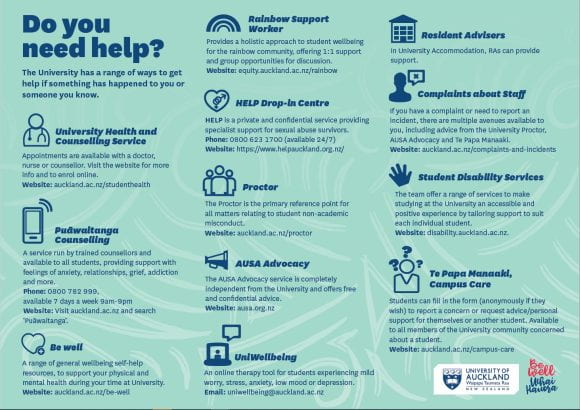
If you are currently coordinating a PG course, could you please post the inforgraphic slide to your Canvas course page so students will know the resources that are available throughout the University.
3k writing grant available for students
These are currently on hold. Rangahau will reopen this fund for requests later in the year, please keep an eye on P-cubed for more details.
Rangahau – Research
Funds are available to support students writing up their thesis as publication(s).
Each grant is worth $3000 (120 hours at 25$ all included). There is no deadline to apply. Applications are evaluated as they come by members of Rangahau (2 weeks turn over max.), until we use all the funds available.
Do you have a good candidate in mind? Please complete this form and submit to katarzyna.sila-nowicka@auckalnd.ac.nz
Funding for Research Retreats
The Rangahau Committee has a small amount of funding set aside to sponsor Research retreats (e.g grant writing workshops, paper writing). This can be up to 2k per team, with a minimum 2 SoE participants.
If you have an idea that you would like considered, please submit a short paragraph explaining the intention and benefits of the retreat to katarzyna.sila-nowicka@auckland.ac.nz.
Proposal development support
The Rangahau Committee has a small fund set aside to help with proposal development (e.g. writing support, support to scope proposals etc). If you have an idea that fits within this scope please get in touch with Kelly Kilpin to discuss further.
Funding
Funding Calls
| 2024 Research Development Fund (RDF) | ||||||||||||||||
| The total amount to be allocated in the 2024 contestable round is approximately $1 million with spending split across 2025,2026, and 2027. This will be distributed amongst the different award types listed below based on the excellence and justifications of submitted applications. | ||||||||||||||||
Value/Duration
Applications are due by 5.00pm on Monday, 2 September 2024 · Full details including guidelines and the application form are available on the research page of the staff intranet · For an overview of the Research Development Fund, visit the Research Hub RDF page If interested, please inform your FIRST team. |
| UoA approach to organisational cap for MBIE Endeavour Smart Ideas 2025 | ||||||||||||||||||||
The University’s response to the organisational cap (23 for the University of Auckland) is to implement a two-stage (Faculty and Central) triage process to determine which applications to support for submission. The steps are summarised as following:
|
| Researcher Skills and Development (RSD) Fund | |
| This fund aims to help enhance and expand researcher development offerings across the University to supplement existing funding sources for the design, development, and delivery of researcher development offerings. | |
| Value: | Deadline: |
| There is no minimum or maximum amount of funding that can be sought per request. The total amount of the fund available is $500k for 2025. | End of the day Friday August 30th |
| Further Information:
· Form, Guidelines and FAQs can be accessed via the Research Hub · For enquiries, please contact victoria.hewitt@auckland.ac.nz If you are interested, please also get in touch with your FIRST. |
|
| Spencer Foundation: Small Research Grants on Education | |
| This fund is intended to support education research projects that will contribute to the improvement of education. The research concept is “field-initiated” with the grant designed to support rigorous, intellectually ambitious and technically sound research that is relevant to the most pressing questions and compelling opportunities in education. | |
| Value/Duration: | Internal Deadline |
| · Value: up to USD50,000 (circa NZD80,000
· Duration: up to a maximum duration of 60 months |
12pm, Monday 2 September 2024 |
| Further Information (funding call, guidelines website):
· Website If you are interested, please also get in touch with your FIRST. |
|
| Te Tahua Taiao Ngā Taonga: Lottery Environment and Heritage grants (Round One) | |
| This fund aims to help protect, conserve or care for our natural, cultural and physical heritage, or allow us to better understand and access these resources.
· Natural heritage projects promote, protect and/or keep our native plants (flora) and animal life (fauna) safe from harm (including the on-going costs of pest and predator control) · Physical heritage projects restore, protect and/or conserve places, structures and large built objects that are important to our history · Cultural heritage projects conserve, protect and/or promote collections and stories that are important to our cultural heritage and identity. |
|
| Value/Duration: | Internal Deadline: |
| Value
· Small projects, where the grant requested is for less than $250,000. · Large projects, where the grant requested is for $250,000 or more. |
5pm, Monday 22 July, 2024 |
| Further Information (funding call, guidelines, website):
If you are interested, please also get in touch with your FIRST. |
|
| The Prime Minister’s Science Prizes | |
| The New Zealand Government introduced The Prime Minister’s Science Prizes in 2009 as a way of raising the profile and prestige of science among New Zealanders, in Aotearoa and internationally.
· Te Puiaki Pūtaiao Matua a Te Pirimia: is for a transformative scientific advance, which has had a significant economic, health, social, political, cultural and/or environmental impact on New Zealand or internationally · Te Puiaki Kaipūtaiao Maea: will be awarded to an outstanding emerging scientist who has had their PhD conferred within the past eight (8) years. · Te Puiaki Whakapā Pūtaiao: will be awarded to either a practising scientist who can demonstrate an interest, passion and aptitude for science communication and public engagement, or to a person who has developed expertise in public engagement or communication of complex scientific or technological information to the public. |
|
| Value: | Deadline: |
| There are five prizes in total with a combined value of $975,000 NZ Dollars. | Applications open 13 May 2024 and close 1pm, 30 September 2024 |
| Further Information:
· Form, Guidelines and FAQs can be accessed via the Research Hub · For enquiries, please contact pmscienceprizes@royalsociety.org.nz If you are interested, please also get in touch with your FIRST. |
|
| New Horizon Europe Calls |
| In mid-April, the European Commission announced a new selection of funding calls covering the remainder of 2024. The funding call details here Horizon Europe Funding Call List on the Horizon Europe Support Materials page on ResearchHub.
New Zealand can participate in these calls on equal terms as our European counterparts. However, the targeted nature of most of these calls means that it is highly likely that it will be more appropriate for us to partner on these projects, joining European-led bids as a collaborator rather than developing a proposal as a lead. Anybody exploring these opportunities should contact International.Research@Auckland.ac.nz to arrange a discussion and explore additional support available. |
MBIE 2025 Endeavour Support
MBIE have released details regarding the 2025 Endeavour Round including:
- 2025 Gazette Notice
- Investment Plan 2025 – 2027, which includes the new Investment Signals
- Changes to Smart Ideas for 2025
Links and details can be found on the MBIE Endeavour Website
Because of the changes to the Smart Ideas round this year, the process at UoA will different than in previous years. If you intend to apply for a Smart Idea this year, please let your RPC (Sophie/Kelly/Franca) know asap so we can pass on any details as soon as they become available.
Support Sessions organised by UOA:
- Research Impact Webinar (24th July 2024 10:00am-11:00am) – Research Impact Manager, Dr Cherie Lacey, will be hosting a webinar to give you practical advice on how to plan your MBIE Endeavour funding application to achieve maximum impact.
Register here
UoA approach to organisational cap for MBIE Endeavour Smart Ideas 2025
Announcements
| Webinar: Building your Knowledge in Responsiveness to Māori within your Research | |||||||||||||
| The webinars will provide a general overview of the Treaty of Waitangi as it relates to research. The content focuses on why it was written, what it says, what went wrong, where we are today, and how it applies to research.
(i) Workshop 1/2 – Making Sense of the Treaty in a Research Context: will provide a brief overview of the Treaty of Waitangi as it relates to research. (ii) Workshop 2/2 – Putting the Treaty into Practice in a Research Context: Christine, founding member of Auckland Project Waitangi, explores application of the main Treaty concepts to the major stages of research.
If you have any questions, please email: researcherdevelopment@auckland.ac.nz |
|||||||||||||
Health, Safety and Wellbeing
Remember to report Injuries, incidents and observations both in the field and on campus.
Injury
Report any injury to an employee, student, contractor or visitor during the course of work activity.
Incident (No Injury)
Report any unplanned event or occurrence that under slightly different circumstances could have caused harm, injury, ill-health or damage.
Observation
Report observed safe (positive) or unsafe (hazardous) acts or conditions.
Damstra can be accessed through Reporting Health and Safety Incidents and Injuries – The University of Auckland
Winter wellbeing topics | Healthify contains valuable information to help you with different aspects that can adversely affect you during winter.
Falls and their consequences can be minimised using the appropriate footwear, not being distracted and paying attention to where you setting your foot next. There are exercises to help you improve your walk
Publications | Articles
- Lorna J. Strachan, Alan R. Orpin, Kyle J. Bland, Adam D. McArthur & Julien Bailleul (2024) Understanding sedimentary systems and processes of the Hikurangi subduction margin; from Trench to Back-Arc. Volume 2, New Zealand Journal of Geology and Geophysics, 67:3, 273-287, DOI: 10.1080/00288306.2024.2358032














 Join us for an evening of creative relaxation with mixed mode of art! Engaging in artistic activities is known to boost wellbeing, so come unwind with us. This event offers a welcoming environment for creativity, regardless of your skill level! 👩🎨🖼️ Enjoy complimentary snacks and drinks while you unleash your inner artist—don’t miss out! 🍿🥤 🗓️ Date: Friday, May 17th ⏳ Time: 6 – 8pm 📍 Location: Breakout Space, B302 Level 6, University of Auckland 🎟️ Ticket: Free, reserve on Humanitix – https://events.humanitix.com/postgraduate-art-wellness-night 🌴Theme: Connecting with Nature Spread the word to any postgraduate students you know—we can’t wait to meet everyone! 🫶💜
Join us for an evening of creative relaxation with mixed mode of art! Engaging in artistic activities is known to boost wellbeing, so come unwind with us. This event offers a welcoming environment for creativity, regardless of your skill level! 👩🎨🖼️ Enjoy complimentary snacks and drinks while you unleash your inner artist—don’t miss out! 🍿🥤 🗓️ Date: Friday, May 17th ⏳ Time: 6 – 8pm 📍 Location: Breakout Space, B302 Level 6, University of Auckland 🎟️ Ticket: Free, reserve on Humanitix – https://events.humanitix.com/postgraduate-art-wellness-night 🌴Theme: Connecting with Nature Spread the word to any postgraduate students you know—we can’t wait to meet everyone! 🫶💜 Congratulations to our winners listed below for their awesome efforts! Looking forward to the 2025 Great SoE Bake Off where 2024 runners up can get vengeance and take first place!
Congratulations to our winners listed below for their awesome efforts! Looking forward to the 2025 Great SoE Bake Off where 2024 runners up can get vengeance and take first place!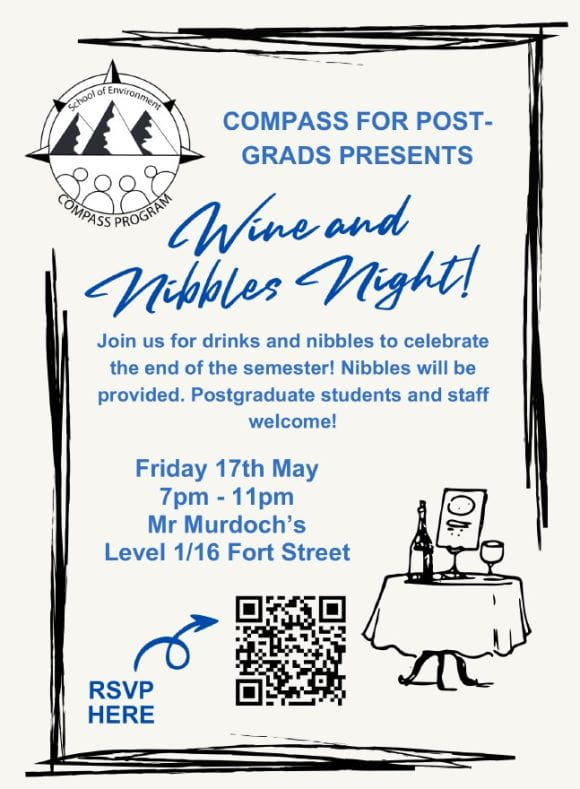
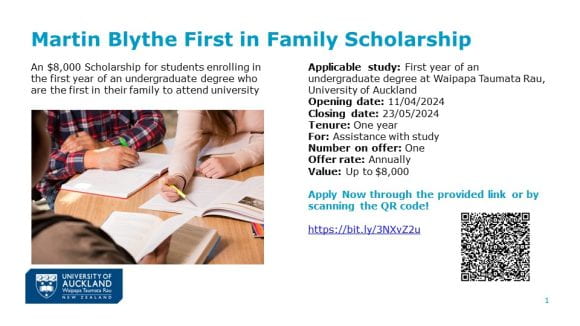



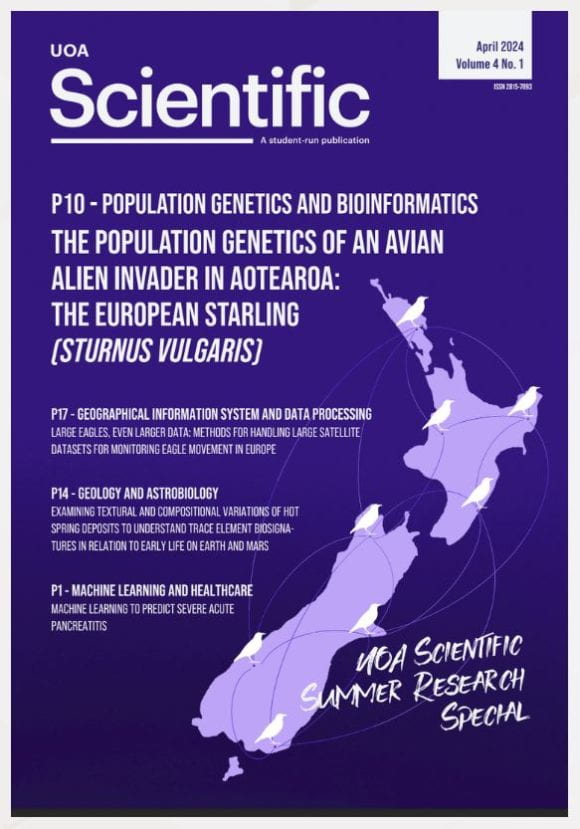

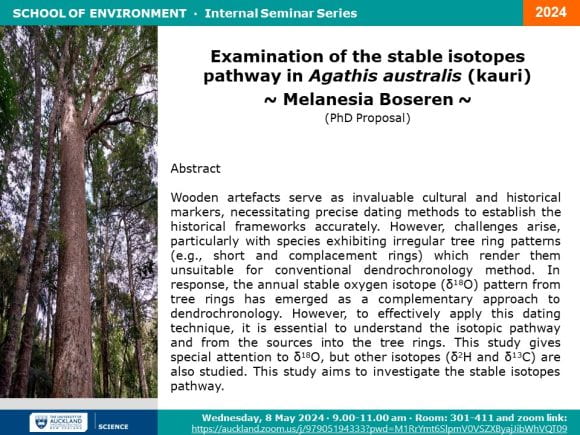
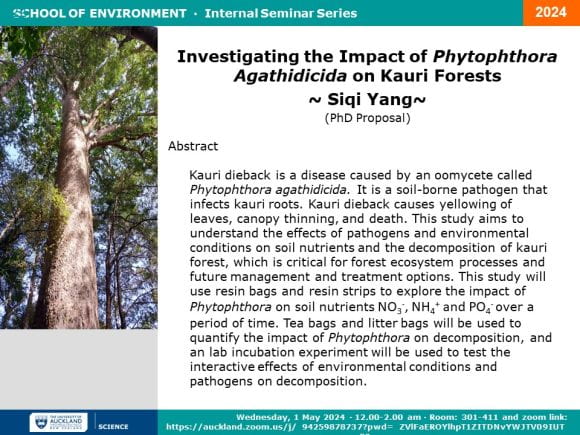
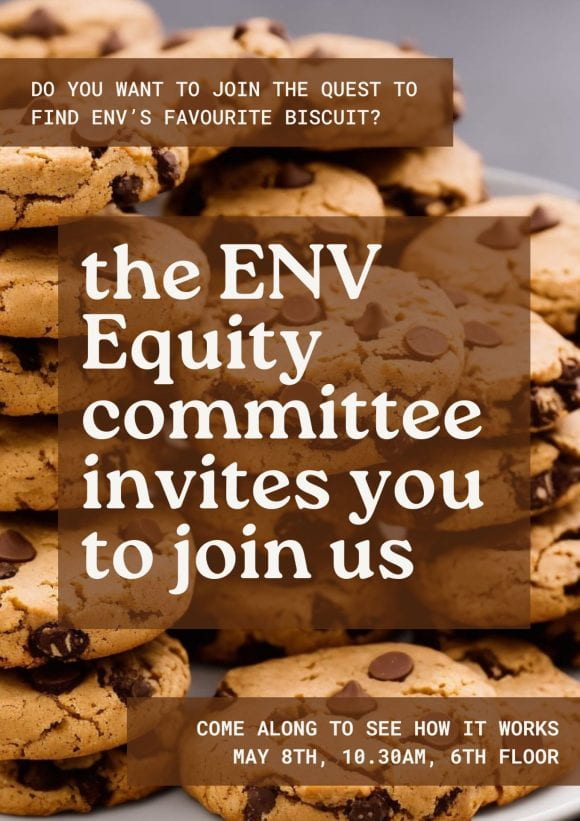
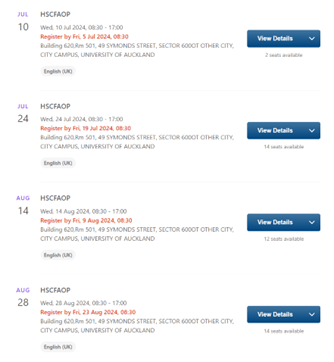
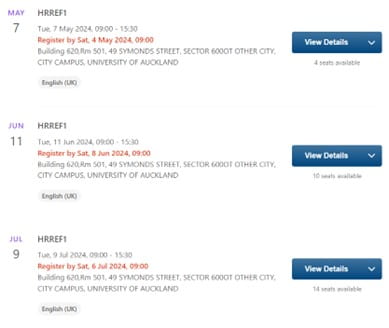
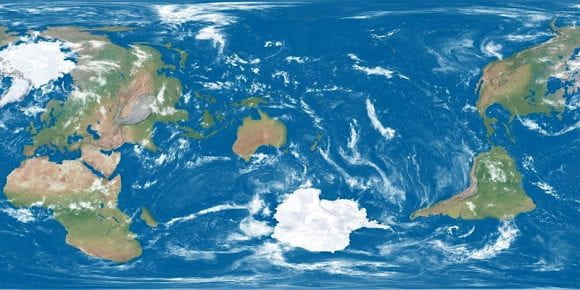 Mon, 22 Apr 2024 4:00 PM – 6:00 PM
Mon, 22 Apr 2024 4:00 PM – 6:00 PM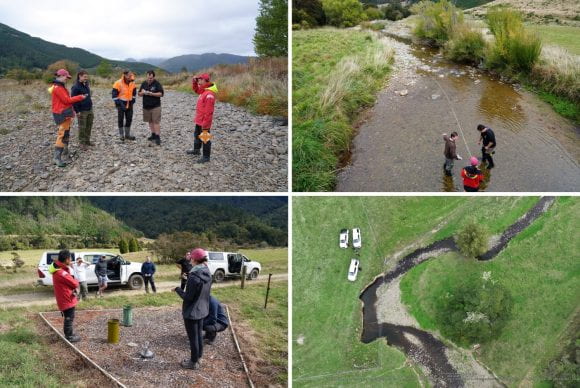 In collaboration with Jon Tunnicliffe, the council has set up monitoring stations in 20 sub-catchments, to refine rainfall-runoff models under a variety of land-cover conditions (e.g. rangeland, forest [native, plantation], recently de-forested, mixed cover). Students had the opportunity to visit a number of these river gauging sites and to collect data for their individual projects. The projects address the feasibility of various runoff attenuation measures, intended to delay and divert flood flows while improving habitat diversity and enhancing ecosystem services. The council’s new LiDAR drone was deployed to collect high resolution data and imagery for the project, while students collected information on channel substrate and vegetation. Discussions with landowners and land managers provided many first-hand insights into the many challenges of flood management in the area. Results of the student work will feed back to the project, broadening the scope of the work while providing students with some practical, applied experience and a new array of geomorphology/hydrology skills.
In collaboration with Jon Tunnicliffe, the council has set up monitoring stations in 20 sub-catchments, to refine rainfall-runoff models under a variety of land-cover conditions (e.g. rangeland, forest [native, plantation], recently de-forested, mixed cover). Students had the opportunity to visit a number of these river gauging sites and to collect data for their individual projects. The projects address the feasibility of various runoff attenuation measures, intended to delay and divert flood flows while improving habitat diversity and enhancing ecosystem services. The council’s new LiDAR drone was deployed to collect high resolution data and imagery for the project, while students collected information on channel substrate and vegetation. Discussions with landowners and land managers provided many first-hand insights into the many challenges of flood management in the area. Results of the student work will feed back to the project, broadening the scope of the work while providing students with some practical, applied experience and a new array of geomorphology/hydrology skills.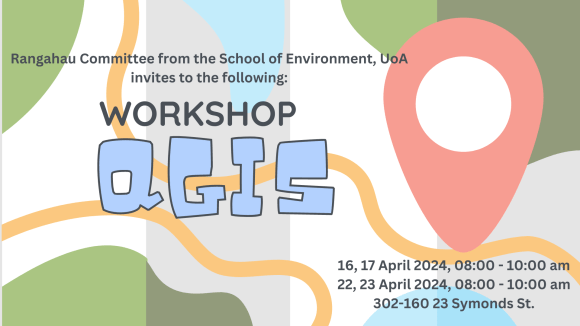

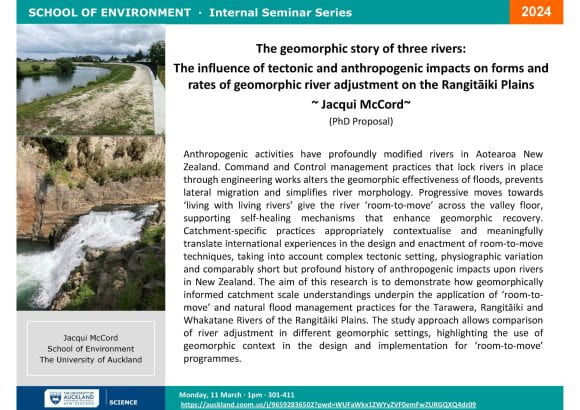
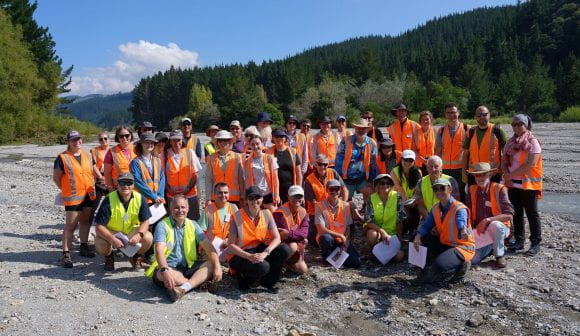 The 20th biannual Australian and New Zealand Geomorphology Group conference was held in Tairāwhiti Gisborne from the 12th to 16th February. The meeting was organised by a team from the University of Auckland led by Jon Tunnicliffe, with the theme: ‘geomorphic disturbance and recovery’. Landscape enthusiasts were aggregated from across Australia, New Zealand and much further afield to learn about current geomorphological research – in particular to discuss what landscape recovery means in a region that is frequently devastated by disturbance events. 81 oral and 21 posters were presented, with topics that ranged from the impacts of geomorphic disturbance through to hazard assessment, applied geomorphology, methodological advances, aeolian systems and numerical modelling. Most importantly, six Masters and PhD students from the University of Auckland presented their research and all did an outstanding job!
The 20th biannual Australian and New Zealand Geomorphology Group conference was held in Tairāwhiti Gisborne from the 12th to 16th February. The meeting was organised by a team from the University of Auckland led by Jon Tunnicliffe, with the theme: ‘geomorphic disturbance and recovery’. Landscape enthusiasts were aggregated from across Australia, New Zealand and much further afield to learn about current geomorphological research – in particular to discuss what landscape recovery means in a region that is frequently devastated by disturbance events. 81 oral and 21 posters were presented, with topics that ranged from the impacts of geomorphic disturbance through to hazard assessment, applied geomorphology, methodological advances, aeolian systems and numerical modelling. Most importantly, six Masters and PhD students from the University of Auckland presented their research and all did an outstanding job!